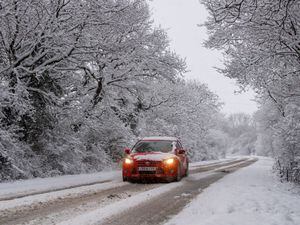How to keep your car battery alive during a cold snap
As temperatures drop it puts your battery at risk. Here’s how to avoid any issues.

The UK is experiencing some seriously cold weather right now, with snow covering much of the country.
With the weather poor and a national lockdown in place, driving should be kept to a minimum. That means cars are rarely being used and, coupled with the cold snap, this can result in dead batteries.
The end product is that your car won’t start, so if you need to make an essential journey for food or to visit a vulnerable relative, it could be an issue.
However, there are ways to mitigate the risk of your battery not starting. The first is to get a mains-powered trickle charger, which attaches to the battery while the car is parked up and sends a low voltage charge to keep the battery in good condition.
The best way to keep your battery working is to use your car regularly, with the engine working to top the battery up. If it’s not being used, you can turn the engine on once a week and leave it running for about 15 minutes to avoid it going flat.
It’s worth noting that you should stay with your car while this is happening as there’s a higher risk of theft. And if you store your car in a garage, move it out of this enclosed space before running the car for an extended period of time.

It’s not just cold weather and lack of use that can drain the battery, though. Regular short journeys can have a detrimental effect on charge levels, while old batteries could need replacing.
If your battery has reached this stage, regularly turning the car on might actually drain it rather than charge it. The average car battery lasts about five years, so check when yours was last replaced and consider whether you need a new one.
Neil Worth, chief executive of road safety and breakdown organisation GEM Motoring Assist, said: “Our recovery agents attend more calls to flat batteries than any other car breakdown.
“If your car battery is getting old, you may find it’s simply not strong enough to start the engine. However, new batteries may let you down if they have been unused for a long period of time.
“Cold weather slows everything down – including the chemical reactions that take place inside car batteries. It’s estimated that when the temperature is at 0 degrees Celsius, a battery loses 35 per cent of its effectiveness.
“Yet so much of the equipment on your car demands electricity – meaning it’s more important than ever to ensure your battery is ready to cope with the increased demands placed on it in cold weather.”
So next time you turn your car on, if the engine labours before the engine fires it could be time to get a new battery. Meanwhile, the sign of a dead battery is hearing a noise from the engine bay but it doesn’t spark to life.
You should also note that your remote central locking system will not work if the battery is completely dead.





